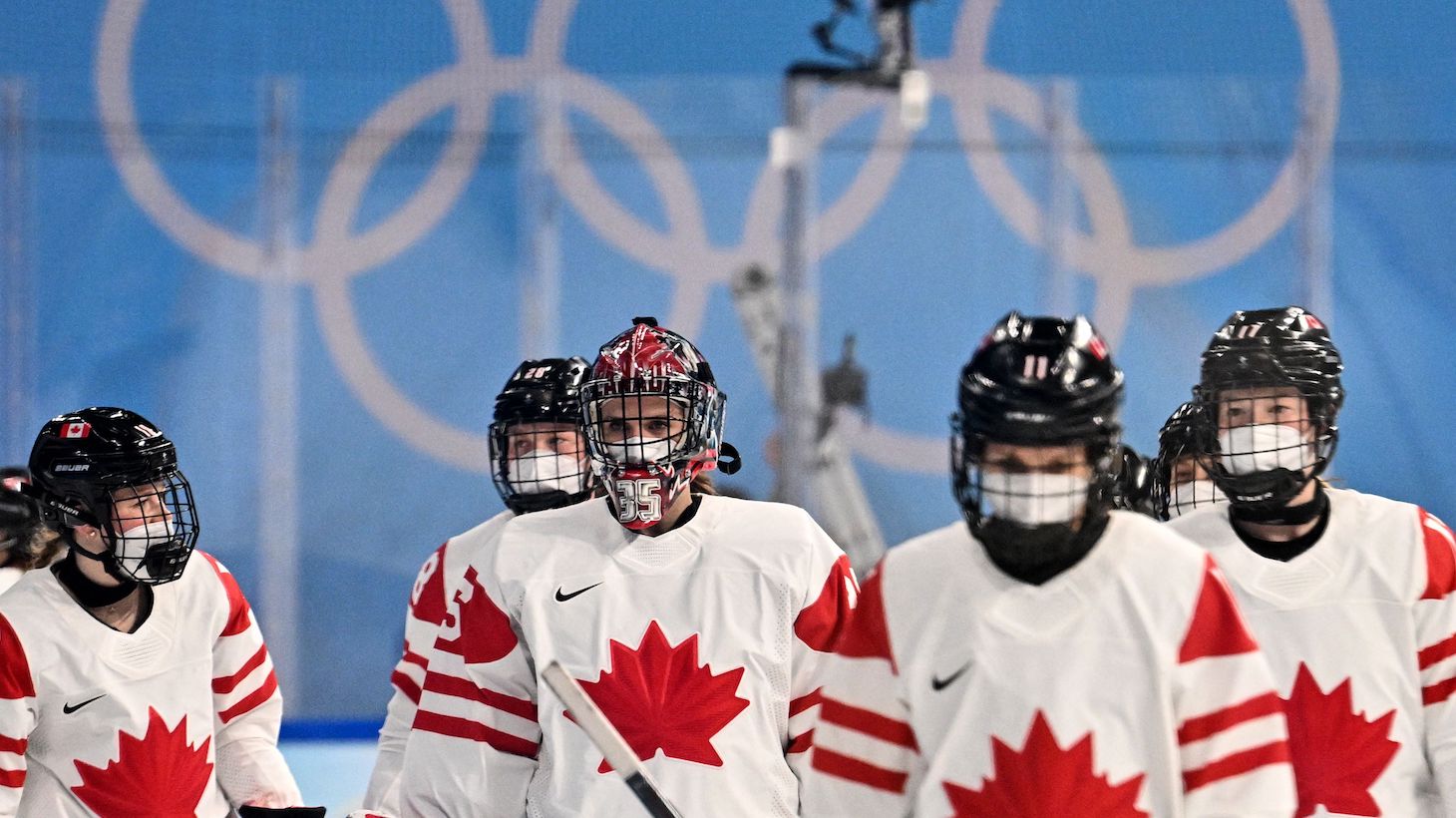The Canadian women's hockey team beat the Russians 6-1 in a round-robin game in Beijing during the early hours of the morning in North America. But the process of getting there was much more difficult and complicated than the foregone conclusion of a final result would imply. Due to issues with unprocessed COVID-19 tests on the Russian team, the game was delayed for over an hour, before the squads worked out an odd compromise: Both would wear N95 masks on the ice during the game.
Though it was hard to get solid information on the delay as it was happening, word did eventually get out that, as the Russians warmed up on the ice, Canada was refusing to come out of their dressing room until they received their opponents' COVID results. It was the right play on the part of the Canadians, because even though Russia was icing a full roster, a half-dozen of their players had already spent time in isolation after positive tests in Beijing. Since hockey, specifically, is maybe the ideal sport for COVID to spread, with its cloud of cold air trapped by the boards and hovering above the ice as dozens skate through it while taking deep breaths, playing against a team with even just one case hiding somewhere in its ranks could have seriously derailed Canada's gold-medal bid.
"Our coaches and medical staff were not going to put us in a situation where we would not feel safe." Canada forward Natalie Spooner said after.
The seriousness with which Canada took the the threat was made apparent by the fact that, even when the Russians removed their own masks when their negative tests came back in time for the third period, Canada kept theirs on for the rest of the win.
"We figured we had them on for two periods so why not keep being extra safe for one period," Spooner added.
The ease of the Canadian win should have helped return a sense of normalcy to the tournament, and Canada's quotes after the game all reflect a remarkable "take it in stride" attitude. ("Just another opportunity to prove that we could get the job done," Brianne Jenner said.) But even amid anodyne non-explanations from the IIHF, the eventual negative tests, and the continuation of games, the mess of the delay and specifically the lack of clarity as it was happening laid bare the shaky foundation on which these Olympics are being played.
With China's zero-COVID policy, and the country's impressive containment of the virus in comparison with the U.S.'s "let it rip" strategy, the safety protocols of these games enjoyed an aura of strict invulnerability. Even before the NHL officially decided to cancel their trip, many players went on the record waffling about their desire to go, believing that a positive test could keep them trapped in the country for weeks or even longer, because that's how seriously China takes this pandemic.
The impeccable masking rate around everything but active competition and the obvious intensity of many precautions have helped reinforce that perception of relentless sterility, but the cracks are hard to ignore. Natalia Maliszewska, a Polish short-track speedskater, has had whiplash going in and out of isolation due to conflicting test results. U.S. figure skater Vincent Zhou tested positive on the same day that his team was awarded a silver medal he contributed to, prompting what will be an extremely nervy waiting game for Nathan Chen and the rest of the American group. Australia's mixed doubles curlers had a very confusing experience in which they thought they would have to leave the country due to a series of positive tests, only to suddenly be told that they could compete. These stressful, often illogical experiences represent just a few of the dozens of athletes and hundreds of participants who have tested positive in the past couple of weeks.
Thanks to the encouraging test results that finally arrived at the rink, plus the extra measure of the masks, the actual risk of Canada playing against Russia today, as it turns out, did not appear to be that high. But the seemingly improvised and half-assed way that officials dealt with the health concerns, as information stayed in the dark and Canada themselves had to be the ones who sounded the alarm, recalled not a country putting containment of COVID-19 above all other goals but an American sports league trying to wing its way through outbreaks with the least possible disruption of the schedule. It was always going to be impossible to pull off an international competition this massive without some COVID cases, but the absolute minimum that everyone traveling and participating deserves is consistency and transparency, and those ingredients seem to be missing in the first few days of the Games. At least a lot of the athletes are used to this by now. Maybe it'll make them feel closer to home.






